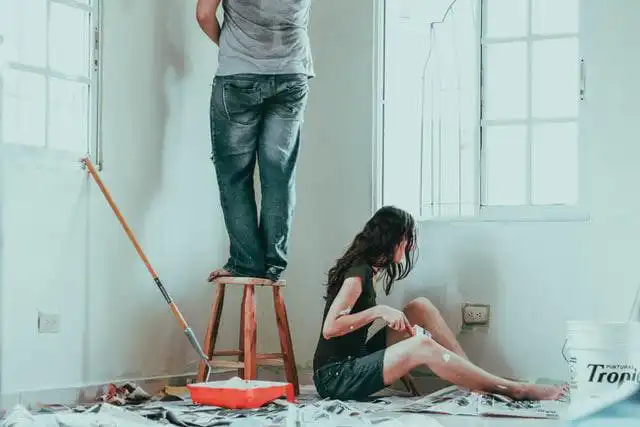
Cynics will tell you that a property listing that praises its “potential” is a euphemism for a property that’s in bad way structurally and aesthetically.
“We tend to define a fixer upper as a property that is available for purchase at a lower than the general marketing going rate because it is in need of quite extensive repairs and maintenance,” says Giel Viljoen, principal at Leapfrog Stellenbosch.
The upside is that you can get a great bargain by opting for a fixer-upper and the downside is, of course, that you need to wade through a lot of problems (and dust, cement, building rubble etc) in order to eventually enjoy the potential.
“There is never one simple way to determine whether a fixer upper is ‘worth it’ or not, but there are a couple of factors to take into consideration that can help you make an informed decision,” Viljoen says.
First things first: Location
Location is always the main consideration when it comes to property decisions, and even more so with a fixer upper. “The worst property in the best area is far better than the best property in the worst area and that is simply because a lot can be done to improve a property but it’s far harder to uplift an entire neighbourhood,” Viljoen says.
Opting for a fixer upper in your location of choice may be the easiest way to “get into” that neighbourhood, and thus a very strategic move.
The configuration of the property is equally important, Viljoen reckons, as the cost of renovations start skyrocketing when changes are made to the layout of the property. “You want to be satisfied with the ‘bones’ and general flow of the place. Consider that there is a big difference between bringing down a wall or enclosing a patio, and moving the kitchen from the back of the house to the front of the house or adding an additional room from scratch.”
Return on investment
A fixer upper is about potential but buyers must understand that realising that potential is going to cost money. “What you save on the purchase price is what can then go towards improvements. You could also consider registering a bigger bond and accessing that capital for the renovations. A trusted property advisor is a useful resource in this regard as they will be able to offer insights into the extent to which the investment will translate into growing the value of the property,” Viljoen says.
Obvious as it may sound, make sure you have a clear plan around what it is that you want the property to be and look like eventually. “The potential of a fixer upper can quickly turn into a major pain when there is no end in sight and you feel like you’re just pushing more and more money into it. A plan and budget can go a long way in mitigating such a scenario,” Viljoen believes.
Dirty hands and lots of patience
Know this, with a fixer upper you are going to have to get your hands dirty at some stage and more likely than not, the project is going to take longer than you expect.
“We don’t say this to be pessimistic but rather to help buyers manage their expectations and budget,” Viljoen says. Getting involved yourself is also very likely to be necessary. Consider painting yourself or recruiting a handyman for the smaller jobs that you can supervise and manage yourself.
Before you start with anything, make a list to distinguish between structural and cosmetic changes as the former is likely to be more crucial than the latter and should probably be tackled first.
Changes that fall into the “structural/fundamental” category include:
-
Shoring up foundations
-
Fixing or replacing the roof
-
Remodelling the kitchen and bathroom
-
Replacing the windows throughout
-
Building new additions like bedrooms or a garage
Cosmetic changes are usually things like:
-
Patching walls and painting
-
Installing new light fixtures
-
Replacing doors
-
Refacing kitchen cabinets
-
Fixing minor plumbing issues
Having said all this, don’t underestimate what a difference even small changes can make. “You’d be surprised what a coat of paint on the inside and a decent garden clean on the outside can do. Start small, and be sure to also enjoy the process of transformation – the end result is usually very rewarding,” Viljoen says.
Author: Leapfrog Property Group

